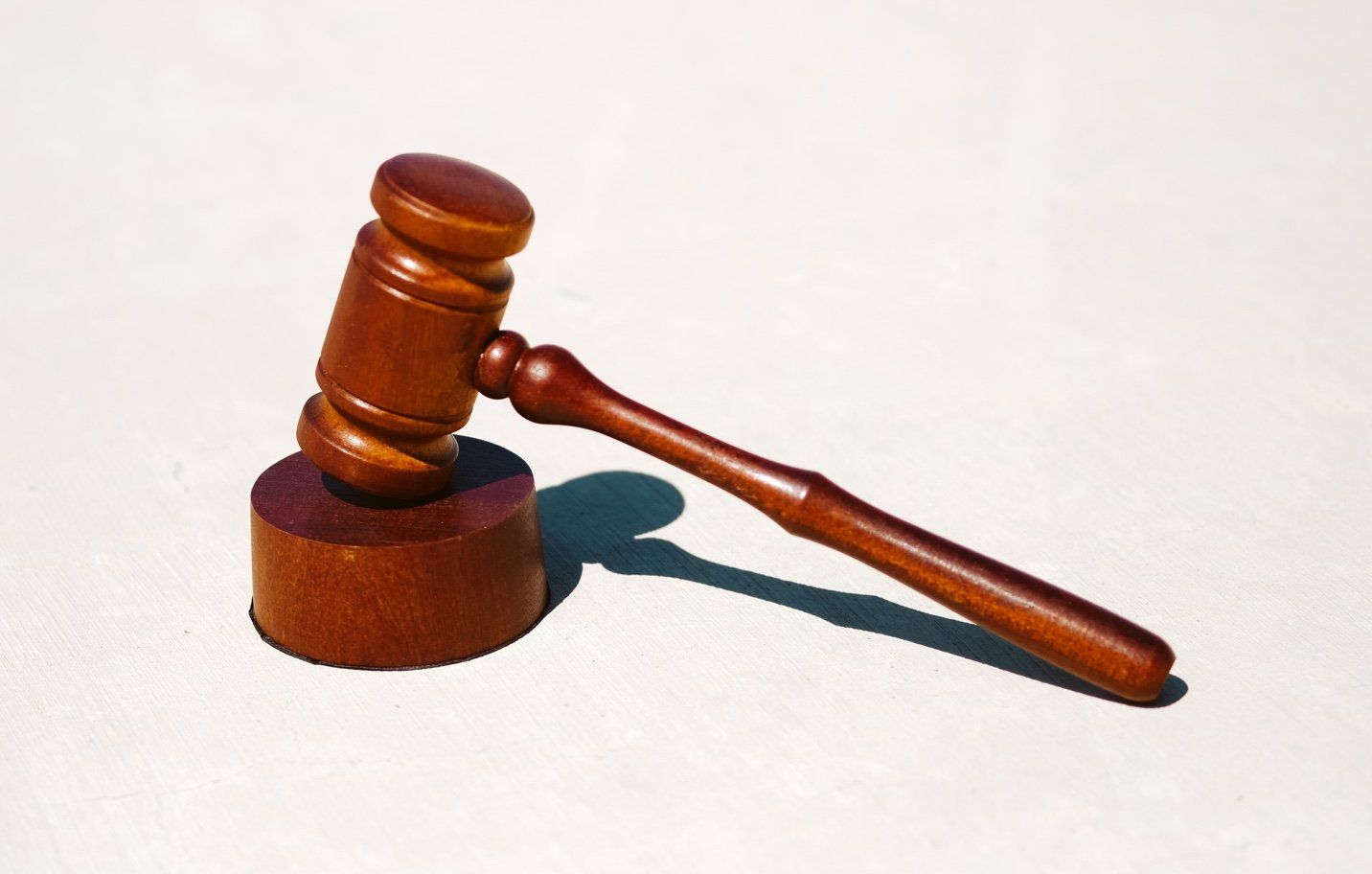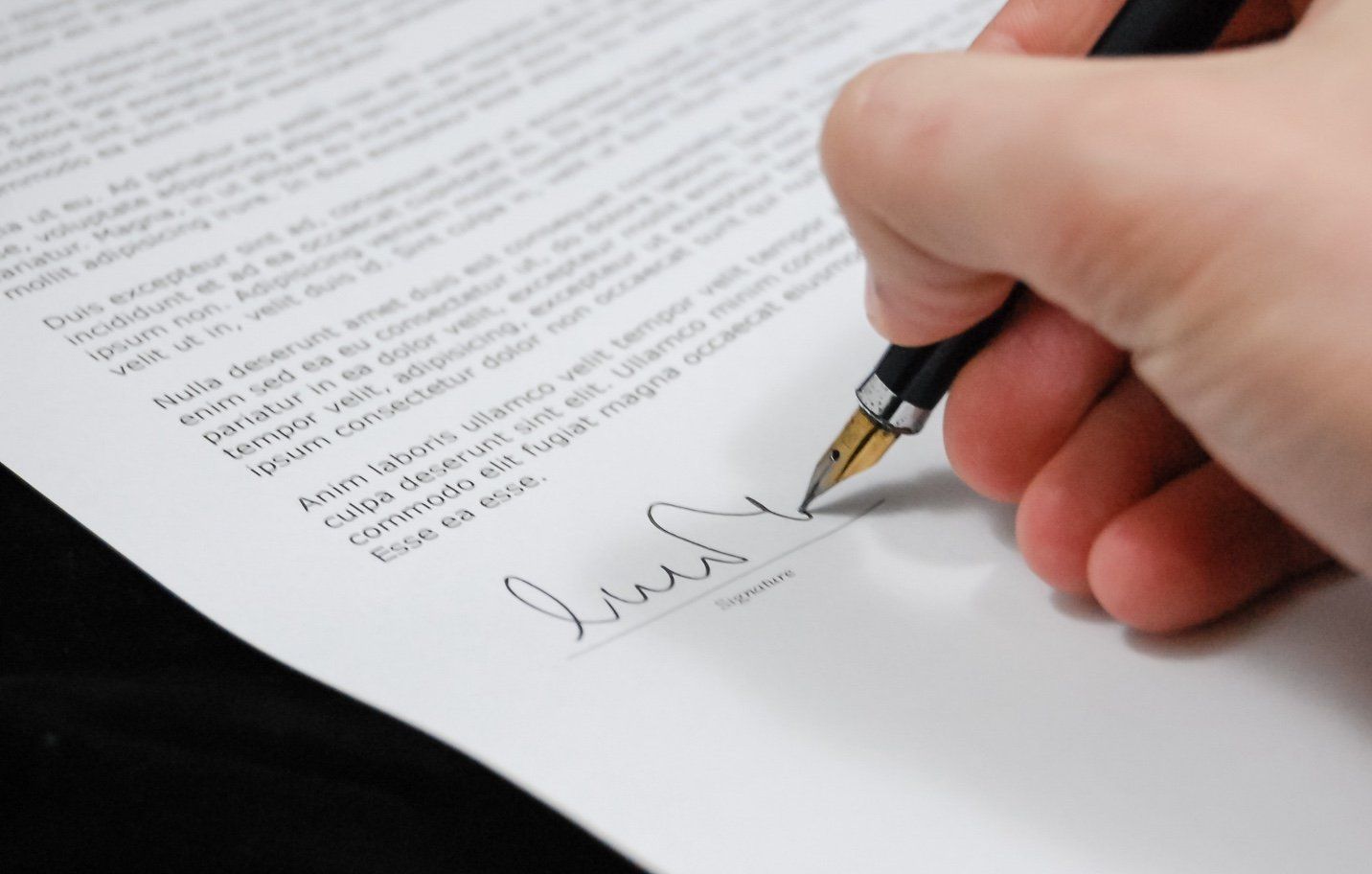Contact us
Phone: 312 977 0100
Fax: 312 977 0795
Our Office
111 West Washington St,
Suite 1425
Chicago, IL 60602
Our Blog

December 11, 2024
Rachel Strieber was honored to plan and co-host the "Women's Bar Cook County Judges' Night" on December 5, 2024. Over 40 judges were in attendance. Rachel is currently a member of the Illinois Women's Bar Association's Civil Litigation Committee where she works to increase opportunities for continuing legal education for fellow attorneys. Rachel also serves on the planning committee for the Women's Bar "Top Women Leaders" and "Judicial Reception" events.

December 11, 2024
Kevin Veugeler secured a $3.2 million recovery plus a waiver of $750,000 in Workers' Compensation benefits for a Sprinkler Fitter who fell from a ladder. While litigating this case, Kevin was able to show that the general contractor and owner of the jobsite failed to follow their own site-specific safety plan to protect the safety of their subcontractors. Through documents and deposition testimony, Kevin was able to establish that the general contractor and owner failed to provide a safe place to work. If you, a friend or a family member have been injured, please contact Healy Scanlon Veugeler Gannon for a free consultation.

December 11, 2024
Matthew Gannon secured an $8.55 million dollar settlement for a construction laborer who suffered a crush injury involving multiple fractures of his leg. Matthew obtained evidence that the general contractor in charge of the work site failed to appropriately stage the phases of work during construction. In addition, Matthew uncovered evidence that the equipment that caused the injury was not being properly supervised at the time of the occurrence. If you, a friend or a family member have been injured, please contact Healy Scanlon Veugeler Gannon for a free consultation.

December 4, 2024
John Scanlon and Kevin Veugeler secured a $7.5 million dollar recovery for a 57-year- old Chicago area man who was injured during surgery at a Chicago area hospital. Their client went in for a neurological procedure to treat a malformation in the brain that increased this client's chance of having a stroke. Unfortunately, the surgeon chose to use a material that was difficult to control within the delicate brain vasculature. Doctors commonly use different types of fillers that are injected into malformations to seal it off. In this case, a type of glue with higher associated risks was utilized on this client, and it escaped into other areas of the brain causing permanent damage. If you, a friend or a family member have been injured by a medical product, please contact Healy Scanlon Veugeler Gannon for a free consultation.

November 26, 2024
Healy Scanlon Veugeler Gannon is excited to share that Rachel K. Strieber is joining the firm as its newest associate attorney. Rachel has been working at the firm as a law clerk for the past 3 years and recently passed the Illinois bar exam with a score high enough to practice in all 41 UBE jurisdictions. Rachel graduated Order of the Coif, ranked within the top 10 students in her graduating law class at DePaul University College of Law. She obtained numerous CALI Awards for earning the highest grade in courses including Secured Transactions, Criminal Procedure, Civil Litigation Drafting, Litigation Laboratory Practicum, and Legal Research & Writing. While in law school, Rachel served as Symposium Editor of DePaul Law Review, and her article regarding EPA regulation of toxic torts was published in Volume 73, Issue 4. She also served as a tour guide for the Office of Admissions, a teaching assistant for a legal research & writing course, a Student Bar Association mentor, and President of a student organization. Rachel obtained multiple scholarships and awards including the Dean’s Certificate of Service, Dean’s Scholarship Award, and Student Leadership Certificate. Prior to law school, she graduated Summa Cum Laude (4.0 GPA) with a bachelor’s degree in Journalism and cognate in Spanish from the University of South Carolina Honors College. Rachel currently serves as Vice Chair of the Chicago Bar Association (CBA) Young Lawyers Section (YLS) Environmental Law Committee and sits on multiple committees for the Women’s Bar Association of Illinois (WBAI). She also volunteers as a Certified Wish Granter for Make-A-Wish Illinois. With a military family background, Rachel is excited to serve Illinois laborers and citizens.We are very excited to have Rachelas part of our permanent team.

November 26, 2024
Michael P. Scanlon secured a $5.75 million settlement for a Chicagoland family after Gary Luke, a Sauk Village police officer, initiated a pursuit after witnessing a vehicle speeding and littering. The fleeing vehicle crashed into the family's home, severely injuring a minor. Defendants filed multiple motions for summary judgment, arguing that they were immune from liability. Michael won all motions, and the case settled shortly before trial was set to begin. If you, a friend or a family member have been injured, please contact Healy Scanlon Veugeler Gannon for a free consultation.
November 13, 2024
After many years of volunteer work and fundraising, the Library at the Irish American Heritage Center opened on Sunday, December 11, 2005, with hundreds in attendance. The fundraising efforts began in 1994 with a small committee including Tom Boyle and John Fitzgerald. It spanned the supportive presidencies of John O’Malley, the late Nora Murphy, Mike Hamman, Chuck Kinney and Patrick Bloom. It also spawned three major fundraising dinners with special performances by Phil Coulter and Irish Tenor, John McDermott. The galas were chaired and emceed by the Honorable Neil Hartigan, Assessor Jim Houlihan, Channel 7’s Joel Daly, Jim Sloan, Jerry Gleason and Bill Mitchell. Just about every phase of the construction of the Library was advanced through the tireless efforts of volunteers at the Center, under the expert leadership of Ambrose Kelly. The Library will house the collective Irish knowledge from the past and make it available for generations into the future. It is truly an outstanding Irish Library. There are books on almost every Irish subject, fiction and non-fiction, an adult and a special children’s section, books on tape and videos. The Library also offers an opportunity to study ancient aspects of Irish history. THE BREHON LAWS From an attorney’s viewpoint, an example of such a study could relate to one of the most interesting features of early Irish society, a remarkable system of societal self-regulation known as the Brehon Laws. Research on Brehon Laws would indicate that long before the Viking, the Norman or the Anglo Saxon invaded its shores, Ireland had developed its own unique and well-defined way of life. Early Irish society laid great emphasis on distinctions of rank and profession. The application of the law was conditioned on one’s status. The Brehon Laws derive their name from ‘brithem’ in old Gaelic or ‘breitheamh’ which means judge in the modern Irish legal system. Accordingly, the Brehon Laws are literally judge-made laws. The Brehon Law judges were divided into three grades. The lowest was allowed to decide cases pertaining to craftsmen. Next in line was the judge known to be competent in traditional law and poetry. The most esteemed of the judicial categories comprised those learned in the traditional law and poetry, and also canon law. Each tuath, or petty kingdom had its own breithem who was appointed by the king. The judges’ fees were, in some cases, calculated as one-twelfth of the amount at issue between the parties. While the laws focused on protection of person and property, unusual offences, involving social mores of the time, included refusal of hospitality, violation of protection and satire. Satirical attacks might include mocking a person’s appearance or physical condition, and could result in a fine. Anyone interested in ancient Irish systems of law or other aspects of Irish antiquity will have an abundant source of materials at the Library. And on non-law related subjects, Ireland also has such a colorful history. The new Library will provide the research tools to explore its interesting past, from ancient to modern, and all other things “Irish.” The Library contains volumes by James Joyce, Samuel Beckett, William B. Yeats, Oscar Wilde and George Bernard Shaw, for those with an appetite for tackling these worldwide Irish literary giants. Books have been donated by various individuals over the past twenty years including some rare volumes of Thomas Moore’s poetry and music from the late 19th Century, kindly donated by Tom Boyle. Chicago native, Finley Peter Dunne, is well represented for those interested in following the adventures of his famous protagonist Mr. Dooley. The above is a mere snap shot of the collection available at the Center, and librarian, Peg Reid, will be happy to assist you with your search for the hard-to-find volumes from our Celtic past. On a personal note, I want to thank the Officers and Members of the Board of the Irish American Heritage Center for recognizing my parents, Martin Healy, Sr. of Swinford, County Mayo and Mary Henneghan Healy of Tourmakeady, County Mayo, in connection with the Library. The Library will welcome visitors after the first of the year.
November 13, 2024
Healy Scanlon Law Firm has for many years represented Irish and Irish-Americans in matters involving personal injury and work-related injury. There are fact situations that reoccur which can be avoided if the individuals are aware of their rights and remedies under our legal systems. The following fact situation is one that we have seen often. Michael arrives in Chicago from Ireland looking for work. Like many new arrivals Michael initially takes whatever work he finds, floating from job to job. Michael runs into a friend who tells him that he has been hired by a general contractor to do some subcontracting work and asks if Michael will work for him as a laborer. Michael is pleased to get the job. During the course of the construction of a house, he slips and falls from a roof and is severely injured. Michael is rushed to the emergency room by ambulance, undergoes surgery and is advised by his treating physicians that he will be unable to work for six months or more. Following the receipt of this bad news, Michael learns that insult has been added to injury. Michael’s friend does not have workers’ compensation insurance. Michael is facing the responsibility for thousands of dollars in bills, and a minimum of six months loss of income, not to mention the prospect of his future work capacity being seriously restricted due to his injuries. What can he do? The Irish community to its credit often rallies around the Michael’s of this world. The community provides him with a place to stay, holds fundraisers to help pay his medical bills and supports him while he is unable to work. However, there may also be some legal options. Under Section 820 ILCS 305/1(a)3 of the Illinois Workers’ Compensation Act, anyone who hires a subcontractor to do work, may become liable to pay compensation to the employees of any such contractor or subcontractor if such contractor or subcontractor doesn’t have insurance. This section of the Workers’ Compensation Act provides for what is known in the industry as the “statutory employer.” Essentially, if a contractor hires a subcontractor to work on his job and that subcontractor turns out not to have insurance for his injured employee, then the general contractor may become liable to pay for the workers’ compensation benefits of that injured employee. The general contractor may be deriving a financial benefit by hiring a subcontractor who is uninsured. Without the cost of insurance premiums, the subcontractor may be able to make a lower bid for his work. For many reasons, as a matter of public policy, the general contractor steps into the shoes of the subcontractor in terms of his responsibility for his injured worker. Section 820 ILCS 305/1(a)3 specifically states that this provision of the Act automatically applies to employers performing work defined as being extra hazardous and enumerates as extra hazardous activity (1) the erection, maintaining, removing, remodeling, alteration or demolishing of any structure; and (2) construction, excavating or electrical work. Under the terms of the statutory provisions of the Act, Michael would receive all of the benefits provided under the Workers’ Compensation Act including, but not limited to, the right to unlimited medical care, the right to two-thirds of his wages tax free for the duration of time he is unable to work, vocational training if he is unable to return to his prior employment and a lump sum settlement. This fact situation is not uncommon and, with the summer coming, more likely to happen, due to the influx of temporary workers from Ireland. If you know of anyone who is injured while working and there is a problem with insurance coverage, advise them to seek counsel immediately.
November 13, 2024
Last month’s article dealt with the importance of utilizing a properly fitted child restraint system. That article highlighted the unfortunate fact that federal standards in this area are inadequate, and there is no requirement for comprehensive testing prior to the release of child restraint systems to the consumer market. As a result, defective car seats slip through the system and are sold in the United States. One tragic result of these poor standards occurred in Montana in 2000. Four month old Tyler Malcom died in a highway accident when his Evenflo “On My Way” car seat broke loose from the seatbelt and flew out of the vehicle with him still strapped inside. A post accident inspection revealed that hooks that secured the seat to the seatbelt cracked off. Evenflo manufactures its car seats in the United States and China. After a lawsuit was filed, Tyler’s parents discovered that in Evenflo’s own tests, prior to the accident, the seatbelt hooks cracked allowing the seat to fly off the testing bench with the testing dummy still strapped in. In fact, the company had videotaped the dramatic testing failures. However, the manufacturer never notified the government of the test failures, nor was it required to under the existing law. A few weeks ago, a Montana jury found that Evenflo knowingly produced and sold a defective child restraint system, even though the company claimed it met all federal standards. The jury awarded the family over $10 million. The verdict included $3.7 million in punitive damages, meant to punish Evenflo for its willful and wanton misconduct in allowing its car seats to be distributed after it knew of their dangerous defect. Evenflo continues to deny there was any defect in its car seats, and released an announcement that it intends to appeal the jury’s decision to the Montana Supreme Court. “ON MY WAY” NOT THE ONLY EVENFLO CAR SEAT WITH DEFECTS Meanwhile, as Evenflo denies defects in its “On My Way” car seats, it admits they exist in other car seats. In May, Evenflo in conjunction with the Consumer Product Safety Commission and the National Highway Traffic Safety Administration announced a recall of 450,000 Evenflo “Embrace” car seat/carriers. The defect in the “Embrace” occurs when used in career position. The handle can unexpectedly release, causing an infant to rotate forward and fall. Prior to the recall, Evenflo had received 679 complaints. These complaints included 160 injuries to children, including one child who sustained a fractured skull. Likewise, in 2001 Evenflo had a similar handle detachment problem with its “Joyride” car seat/carrier. This prompted a recall of 3.4 million of the combination seats/carriers. One Consumer Reports spokesman criticized the decision to make multi-use products, stating that design standards have not yet been established. CONSUMERS MUST KEEP TRACK OF RECALLS As our news becomes inundated with recall after recall of children’s products, including everyday items like toys and car seats, it becomes more and more important for consumers themselves to keep track of product recalls. Both the National Highway Traffic Safety Administration and the Consumer Product Safety Commission keep information related to recalls on their websites. More importantly, recalls are preceded by consumer complaints. If you experience problems with a product, it is important to report the problem to the manufacturer. If you or one of your children is injured because of a defect in a product, it is important to contact a product liability attorney as soon as possible.
November 13, 2024
Many claims for physical, emotional and sexual abuse suffered in Irish Institutions going back as far as the 1920’s have been filed in Ireland. The claims involve children residing in industrial schools, orphanages, reform schools and other types of institutions who were subjected to ill treatment. In response to an awareness of this treatment, the Irish Government in December, 2002, created the Residential Institutions Redress Board. The purpose of the Board was to compensate those who had been abused as children in residential homes in Ireland. The schedule of institutions involves numbers well over a hundred, located in all parts of Ireland. The filing period for claims with the Board is three years from the date of its establishment, so it will end in December of this year. It is estimated that thousands of people in the United Stated may be eligible to file a claim, but, that many have still not done so and that many may not even be aware of their right to file such a claim. The Redress Board, which is an independent entity, is chaired by The Honorable Justice Sean O’Leary, a Judge of the High Court. APPLICATION FORMS The claim process begins by filing an application with the Redress Board. There are two application forms: a general application form for those applying for themselves or for persons under the age of 18 or person incapable of managing their own affairs, and a deceased application form for persons applying on behalf of a person who has died after May 11, 1999. After receiving an application, the Board may obtain further information, which includes notifying the person and institution involved. After the Board obtains all the information it deems necessary, it then may make a settlement offer. The applicant is free to accept or reject the offer. If accepted, no hearing is necessary. If rejected, it will go on to the hearing stage by the Board. REDRESS BOARD HEARINGS Most of the claims filed with the Redress Board have been settled without a hearing. The Board endeavors to settle the claims without a hearing, especially if the burden of travel is too great. The hearing process of the Board is informal, private and not opened to the public or media. The cases are handled with sensitivity to the subject matter of the claims. If the applicant is not satisfied with the award by the Board, an appeal may be taken to the Residential Institutions Review Committee. If the award is accepted at either level, the applicant gives up the right to bring an additional claim in court for the injuries. FILING DEADLINE The filing deadline for claims with the Irish Residential Institutions Redress Board is December 1, 2005. If you or a friend or relative was the subject of this type of treatment, contact can be made with attorneys in this country who can work with solicitors in Ireland to process the claims. Additional information is available at www.rirb.ie.
November 13, 2024
Martin Healy Jr. has been chosen as Person of the Year by the Irish American Heritage Center/ IBAM committee for his dedication and support of the Irish community in Chicago. The son of immigrant parents from Ireland, Martin is very active in the Irish Community and Irish organizations including the Irish Fellowship Club of Chicago (President), Irish American Heritage Center (Chairman, Library Fundraising Committee), Celtic Legal Society (President) and the St. Patrick’s Day Parade Committee (Annual Dinner Chair and Secretary of the Board of Directors). Martin Healy and other members of The Healy Scanlon Law Firm write a monthly column for the Irish American News, “Healy Scanlon” covering legal topics of interest.
January 10, 2024
American Federation of State, County & Municipal Employees #2912 Association of Flight Attendants — Communications Workers of America #8 Amalgamated Transit Union #308 Boilermakers Local #1 Cement Masons Local #502 Carpenters Local #10, #12, #434 Ceramic Tile Finishers Local #25 Chicago Teachers Union/American Federation of Teachers #1 Electrical Workers Local #9, #134 Elevator Constructors Local #2 Fire Fighters Local #2, #1263, #3074, #3547, #3905, #4092, #4223, #4323 Glazers Local #27 Graphic Communication Workers Local #458 Heat and Frost Insulators Local #17 Iron Workers Local #1, #63 Laborers Local #1, #2, #4, #5, #6, #76, #1001, #1092 Lathers Local #74 Machinists Local #126 Operating Engineers Local #150 Painters Local #14, #21 Pipe Fitters Local #2, #123, #597 Plasterers Local #5 Plumbers Local #130 Roofers Local #11 Service Employees International Union #1, #73 Sheet Metal Workers Local #73 Sprinkler Fitters Local #281, #669 Stagehands IATSE Local #2 of Chicago Stationary Engineers Local #399 Teamsters Local #705, #710, #726 Transport Workers Union of America Local #556 Tuck Pointers Local #52 Unite Here #1 …and many others.
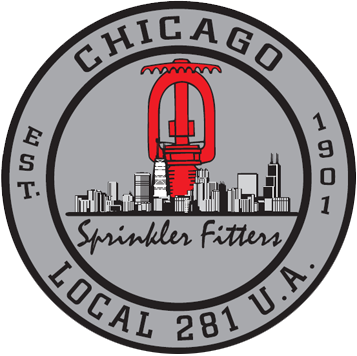
November 26, 2023
Healy Scanlon Veugeler Gannon would like to congratulate Kevin Veugeler and Michael Scanlon for securing a recovery over $1.45 Million for a 48-year-old Local 281 sprinkler fitter who was in a collision on the expressway. While driving a service truck, the fitter was involved in a multi-car collision. Healy Scanlon Veugeler Gannon was able to secure both workers' compensation and third-party benefits. Unfortunately, another driver involved in the collision chose a billboard attorney to represent him. He received far less in recovery despite sustaining significant injuries. The counsel that you choose to represent you is important. If you, a friend or a family member have been injured, please contact Healy Scanlon Veugeler Gannon for a free consultation.

By healyscanlonveugelergannon
•
May 25, 2021
The summer is coming, the weather is changing, and motorcycle riders are ready for a new season of fun. However, have you thought about what to do in the event that you are involved in a serious motorcycle accident? What you should do will depend on the severity of your accident and injuries. If you have been seriously hurt or injured, you may not be able to do anything due to the extent of your injuries. Motorcycle accidents and injuries are normally the most severe amongst motor vehicle accidents.

By healyscanlonveugelergannon
•
April 28, 2021
According to the CDC – around 165 Americans die each day due to traumatic brain injuries. These injuries can be caused by a blow or penetrating injury to the head. Traumatic Brain Injury is a significant cause of death and disability in the United States – contributing to around 30% of all injury deaths. Those who survive TBI commonly face effects lasting a few days to disabilities that can last for the rest of their lives. The risk of death from an injury doubles following a moderate to severe traumatic brain injury.
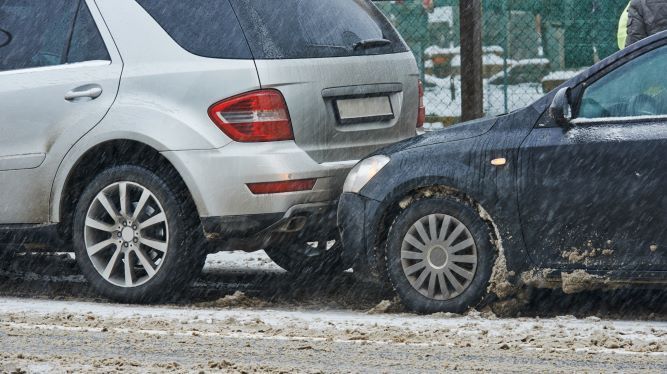
By healyscanlonveugelergannon
•
April 16, 2020
The scene on the Kennedy was chaotic after a 50+ car pile-up early Wednesday morning . Portions of the expressway were closed for about five hours, 12 ambulances were on sight, and 14 people were transported to area hospitals. Another 45 were medically evaluated at the scene. But, there’s one thing that may be more complicated than dozens of cars and trucks colliding during a springtime snow in the middle of a global pandemic: sorting out liability and securing the compensation you deserve.

By healyscanlonveugelergannon
•
March 7, 2020
Unfortunately, accidents in the workplace are fairly common, such as injuries accrued by falling off a ladder, lifting heavy items, or even long developing injuries, like a carpal tunnel for workers who type often. Workers who acquire these injuries need experienced advocates, like workplace comp lawyers, to help them get the compensation and medical care they require from a rather complicated system. Thankfully, Healy Scanlon has the top workman’s comp lawyers in Chicago , so you can be sure to receive compensation for your workplace accident.
Contact Us
Fill out the form or call us to get in touch with our firm to set up a free consultation regarding your case.
Contact us
Phone: 312 977 0100
Fax: 312 977 0795
Contact Us
Thank you for contacting us.
We will get back to you as soon as possible.
We will get back to you as soon as possible.
Oops, there was an error sending your message.
Please try again later.
Please try again later.
Our Office
111 West Washington St,
Suite 1425
Chicago, IL 60602
Legal
Privacy Policy
Disclaimer
Copyright Notice
© 2024 by Healy Scanlon Veugeler Gannon. All rights reserved.
